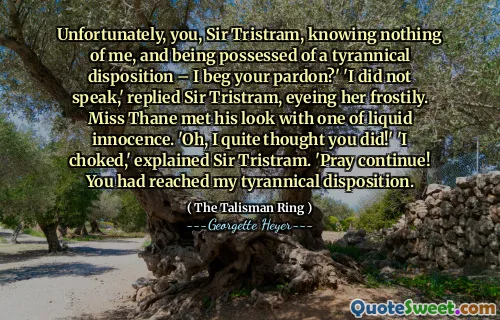Sir Tristram was contemplating with grim misgiving the prospect of encountering vivacity at the breakfast-table for the rest of his life...
In Georgette Heyer's "The Talisman Ring," Sir Tristram is filled with unease as he reflects on the idea of facing perpetual cheerfulness at breakfast every day. This prospect seems daunting to him, indicating that he dreads not just the routines of life, but also the emotional demands that come with dealing with someone who is constantly vibrant and lively. His worries hint at deeper concerns about compatibility and the challenges of maintaining a long-term relationship.
This sentiment suggests a contrast between Tristram's temperament and that of the person he is envisioning sharing his life with. His discomfort underscores a theme of the novel regarding the complexities of love and companionship. The breakfast-table scene becomes a metaphor for the everyday interactions that form the foundation of a relationship, and Tristram's apprehension reflects his desire for a more measured and perhaps serious approach to life rather than one filled with unrestrained exuberance.






